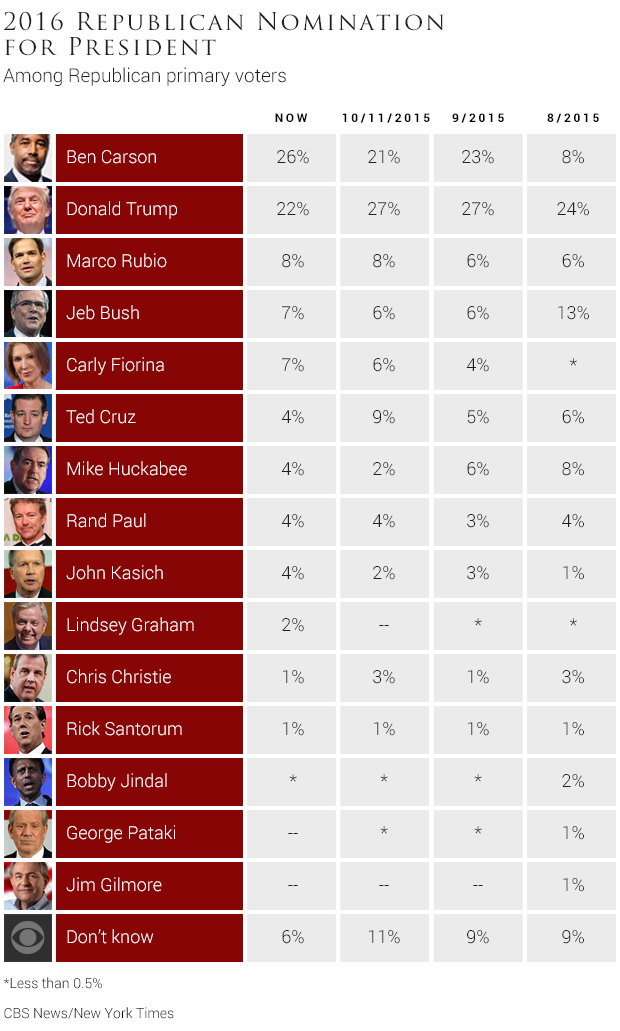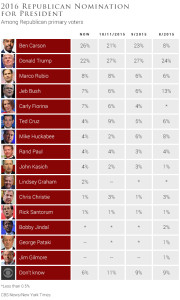Polls: Should You Trust Them?
 CBS News/New York Times (http://www.cbsnews.com/news/donald-trump-still-seen-as-most-electable-in-cbsnyt-poll/)
CBS News/New York Times (http://www.cbsnews.com/news/donald-trump-still-seen-as-most-electable-in-cbsnyt-poll/)
In the past few days there have been a number of stories about who is polling the highest, who is trailing in the numbers, who should drop out of the race due to their polling. The Expat Elector is here to discuss the problems with polling and why we should take the numbers and percentages with a grain of salt.
There are lots of different polls that keep up with the elections but the ones I have kept up with this week are the NBC News/Wall Street Journal poll, the IBD/TIPP poll, and the CBS/New York Times poll. These three polls all have very different ideas about who is in the lead of the primary races:

NBC News/Wall Street Journal – Carson leading +6 points ahead of Trump, Clinton leading +31 points ahead of Sanders
IBD/TIPP – Trump leading +5 points ahead of Carson, Clinton leading +15 points ahead of Sanders
CBS/New York Times – Carson leading +4 points ahead of Trump
How is it possible that there can be such differences in this data among these highly reputable polls? According to a June 2015 article by Cliff Zukin from the New York Times, “election polling is in near crisis.” The polling business is unreliable, based on biases, and becoming less and less of a science. Polls are often conducted in online surveys or by phone. As a result, these are highly biased surveys that only reach a small fraction of a population. For example, the famous American Gallup poll uses a methodology of 1,000 national adults to represent the entire US population. These polls are meant to be random but as they are voluntarily taken, how random can they truly be?
So why does this matter? For starters, these polling results supposedly represent regional and/or national trends and have the ability to influence voters across the entire country. It’s an unfortunate fact of life that many voters look to the polls to decide who they should vote for, rather than doing research on their own about the candidates. These polls also give candidates and their campaign workers inflated (or deflated) ideas of their success when in reality, they can be vastly inaccurate. Even if the above polls are correct (which they can’t possibly be due to the differences in data), they still have the ability to influence votes based on a number, not on policy and this voter disagrees profoundly with that idea.
What do you think about polling? Is is effective in today’s modern, fast-paced society? Do you trust polls?
With 370 days until the election,
Phoebe Warren
